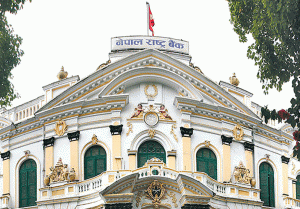
Op-ed editors of broadsheet dailies published in Kathmandu on Wednesday have given space to a host of ‘ever-green’ issues that have been making the rounds in the press. Issues related to Nepal’s contribution to the UN, the delay in investigating cases of disappearance during the conflict, the Prime Minister’s visit to New Delhi, the future of the ruling coalition and the relevance of SAARC.
Nepal’s standing in the world

Senior diplomat Bhekh Bahadur Thapa, who is also a member of the Nepal-India Eminent Persons’ Group, in his lead article for Annapurna Post, says although Nepal is a small and poor country, it has equal standing among sovereign countries of the world. Thapa says that Nepal now has diplomatic ties with over 150 UN members, and its contribution to peace-keeping missions has been exemplary.
He says that despite the many hardships facing the country, Nepal has managed to maintain its independence. Thapa says he had had the opportunity to work with three kings and 10 prime ministers, but the contribution King Mahendra made to develop Nepal’s foreign relations has been the game-changer for the country.
Deuba’s deficiencies

Prime Minister Sher Bahadur Deuba’s visit to the Indian capital sill remains a topic of discussion in the Nepali press. In this context, Krishna Murari Bhandari, in his piece for Annapurna Post, says Prime Minister Sher Bahadur Deuba, who rose to power after 1990, has made a lot of mistakes in the past. He was the one who made controversial decisions just to keep his coalition intact. He was also the one removed by Gyanendra for being incompetent. Bhandari says perhaps Deuba will never be appreciated for his work by the Nepali people. He then goes on to talk about China and India and India’s decision to withdraw troops from Doklam. He says that the Indian move to send troops to Doklam and enforce a blockade on Nepal in 2015 were both ill thought out and immature. Both the moves backfired on India.
Is SAARC still relevant?

Former foreign minister Ramesh Nath Pandey, in his piece for Republica, says that although economic power in the world is shifting towards Asia, South Asia has failed to collectively reap benefits from the rise of India and China. The 19th SAARC Summit remains postponed for an indefinite period. This is happening at a time when almost all major regional organisations in the world are passing through turbulent weather.
Although India played an important role in establishing the SAARC, neither has it been successful in improving ties with its small neighbours, nor have the small neighbours been able to address New Delhi’s genuine concerns. He says new regional grouping such as the BIMSTEC and BBIN have been getting a lot of attention these days, but member states have put in a lot of energy and effort in SAARC and it should not be allowed to fail.
Where are the disappeared?

As rights activists around the world observe the International Day against Enforced Disappearances, calls are increasing in Nepal for people involved in such cases to be punished. In this context, Ram Kumar Bhandari, in his article for The Kathmandu Post, says the Commission formed to investigate cases of enforced disappearances lacks political will to search for truth and justice and is a weak mechanism that can only serve political interests. He says that the government and the concerned agencies must listen to the families’ demand for truth and must respect their right to know what happened to their loved ones.
The future of the ruling coalition

Former foreign minister and Nepali Congress leader Prakash Sharan Mahat, in his piece for Naya Patrika, says the NC and the Maoist Centre should keep their coalition intact for at least 8-10 years so that democracy can be institutionalised in the country. He says that although there are elements inside the Maoist Centre and the UML that want communists to form a coalition, the alliance between the Congress and the Maoists is a more practical one and only it can effectively implement the new constitution.
























